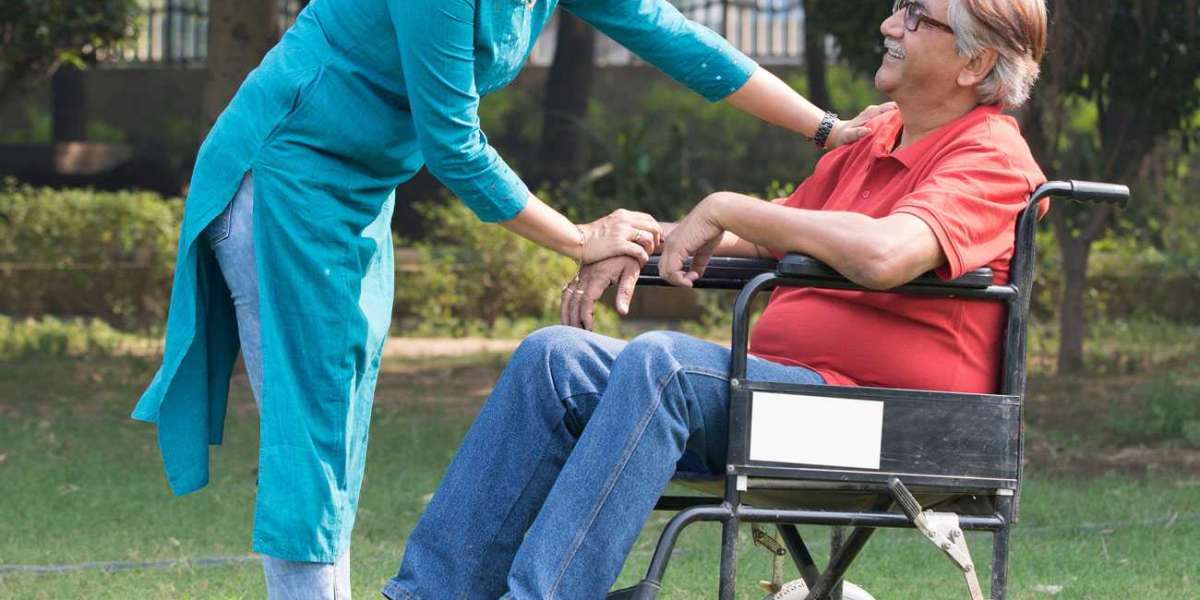As families in Chennai explore elder care options, understanding the legal aspects of elder care is crucial. In India, laws and regulations surrounding elder care are designed to protect the rights of elderly individuals, ensuring they receive appropriate care and are treated with dignity and respect.
1. Legal Rights of Senior Citizens in India
In India, the legal framework protecting senior citizens is primarily governed by the Maintenance and Welfare of Parents and Senior Citizens Act, 2007. This law ensures that elderly individuals are entitled to maintenance and care from their children or relatives. Key provisions include:
- Maintenance of Parents: The law mandates that children and legal heirs must provide financial support to their parents, if they are unable to support themselves. In Chennai, this means that adult children have a legal obligation to provide for their elderly parents' basic needs, including healthcare, accommodation, and living expenses.
- Welfare and Protection: The Act also ensures that elderly people are protected from neglect and abuse. It provides avenues for senior citizens to seek redressal through senior citizens’ tribunals in cases of neglect or abandonment.
- Entitlement to Welfare Services: Elderly individuals have the right to access various welfare schemes, healthcare services, and facilities available for their care, either at home or in institutions.
2. Elder Abuse and Protection Laws
Sadly, elder abuse, both physical and emotional, is a growing concern. In Chennai, families must be vigilant about the well-being of their elderly relatives, especially when care is outsourced. The Protection of Women from Domestic Violence Act, 2005, also covers elderly women who are subject to violence or neglect in the family. Additionally, the Maintenance and Welfare of Parents and Senior Citizens Act allows elderly individuals to approach a tribunal for any grievances related to neglect, abuse, or improper care.
To protect seniors from such abuses, Chennai has several government and non-government organizations working to raise awareness and provide support to elderly individuals facing mistreatment. Care facilities and home care agencies in Chennai must adhere to stringent safety protocols and provide a secure environment.
3. Choosing Legal Guardianship and Power of Attorney
When considering elder care in Chennai, legal guardianship and power of attorney are essential considerations. If an elderly person is unable to make decisions about their health, finances, or general well-being, a family member may need to be appointed as their legal guardian. Guardianship grants a person the authority to make decisions on behalf of the senior citizen regarding healthcare, finances, and other important matters.
Power of Attorney (POA): This is a legal document that allows a senior citizen to appoint someone to make decisions on their behalf. A power of attorney can be specific to health-related matters (Health POA) or broader, covering financial decisions (General POA). In Chennai, a registered POA can help families ensure that their loved ones receive the right care and make decisions when they are unable to do so themselves.
Guardianship: If an elderly person is mentally incapacitated and unable to make informed decisions, legal guardianship may be appointed by the court. This guardianship gives the appointed individual the right to take care of the senior citizen’s needs, including health care and living arrangements.
4. Legal Aspects of Financial Planning for Elder Care
Planning for elder care requires sound financial decisions, and understanding the legalities of financing is crucial. Several financial issues arise in elder care, including the payment for long-term care, insurance coverage, and the distribution of assets.
- Elder Care Insurance: While traditional health insurance policies may cover hospitalization and medical care, some private insurers in Chennai offer specialized health insurance plans for seniors, which cover critical illnesses, domiciliary care, and post-hospitalization expenses. It is important to understand the terms and conditions of these policies, including the exclusions, age limits, and claim procedures.
- Wills and Estate Planning: Seniors should have a valid will to ensure that their assets are distributed according to their wishes after they pass. A will ensures that the elderly individual’s assets, such as property, savings, and other valuables, are passed on to the intended beneficiaries. In addition to a will, seniors may consider setting up trusts or assigning beneficiaries to specific assets.
- Financial Power of Attorney: For seniors who are concerned about managing their finances, a financial power of attorney can be appointed to ensure their financial matters are in trusted hands.
5. Regulations for Care Homes and Assisted Living Facilities
When considering institutional care, such as nursing homes or assisted living facilities in Chennai, it is important to verify whether the facility is licensed and regulated by the appropriate authorities. The Tamil Nadu Senior Citizens Welfare Fund oversees the functioning of care homes and ensures that they meet the required standards for hygiene, safety, and medical facilities.
- Licensing and Accreditation: Assisted living facilities and nursing homes must obtain a license to operate in Chennai. These facilities must meet the standards set by the government to ensure proper care and treatment. Families should check the licenses and accreditations of these facilities to ensure their loved ones receive quality care.
- Resident Rights: Senior citizens residing in care facilities have specific rights, including the right to privacy, dignity, and the right to receive safe, professional care. Facilities must provide transparency about their services, costs, and policies. Legal actions can be taken if these rights are violated.
6. Government Welfare Schemes for Senior Citizens
The Indian government offers several welfare schemes for senior citizens, including those in Chennai. Some of the most notable include:
- Indira Gandhi National Old Age Pension Scheme: Provides a monthly pension to elderly individuals who meet the eligibility criteria.
- National Social Assistance Programme: Offers financial assistance for healthcare, education, and other social needs.
- Health Insurance for Senior Citizens: The government also offers health insurance schemes specifically designed for the elderly, which cover hospitalization costs and other health services.
Families can consult with local authorities or welfare departments in Chennai to find out more about these programs and apply for the necessary assistance.
Conclusion
Navigating the legal aspects of elder care in Chennai can seem overwhelming, but understanding the rights, responsibilities, and available resources can ease the process. From understanding the Maintenance and Welfare of Parents Act to securing guardianship and managing financial decisions, it’s crucial for families to take proactive steps to ensure that their elderly loved ones are protected and cared for according to their wishes. By understanding the legal framework, families can ensure their elderly relatives receive the best care, in a manner that respects their rights and dignity.





